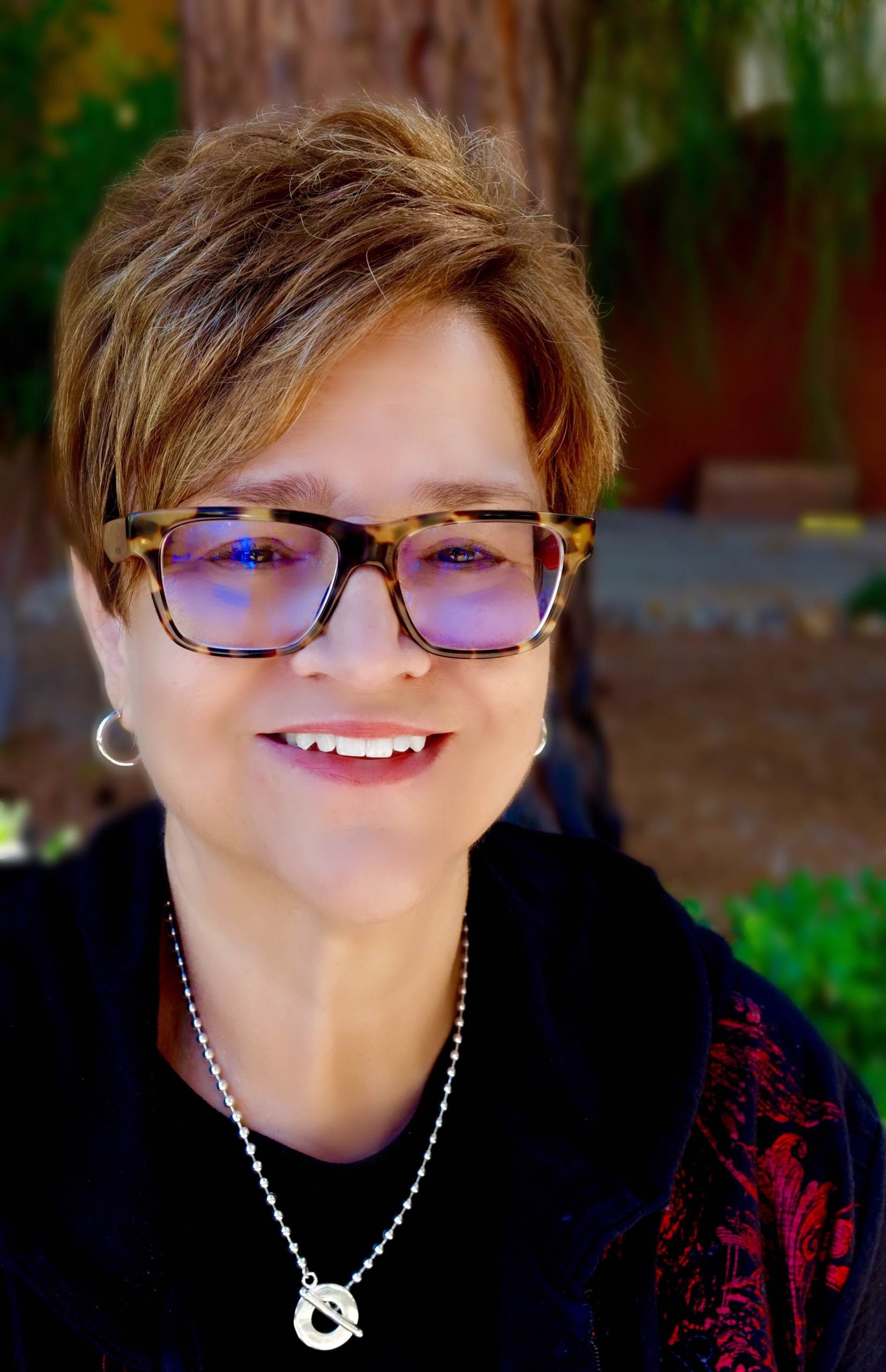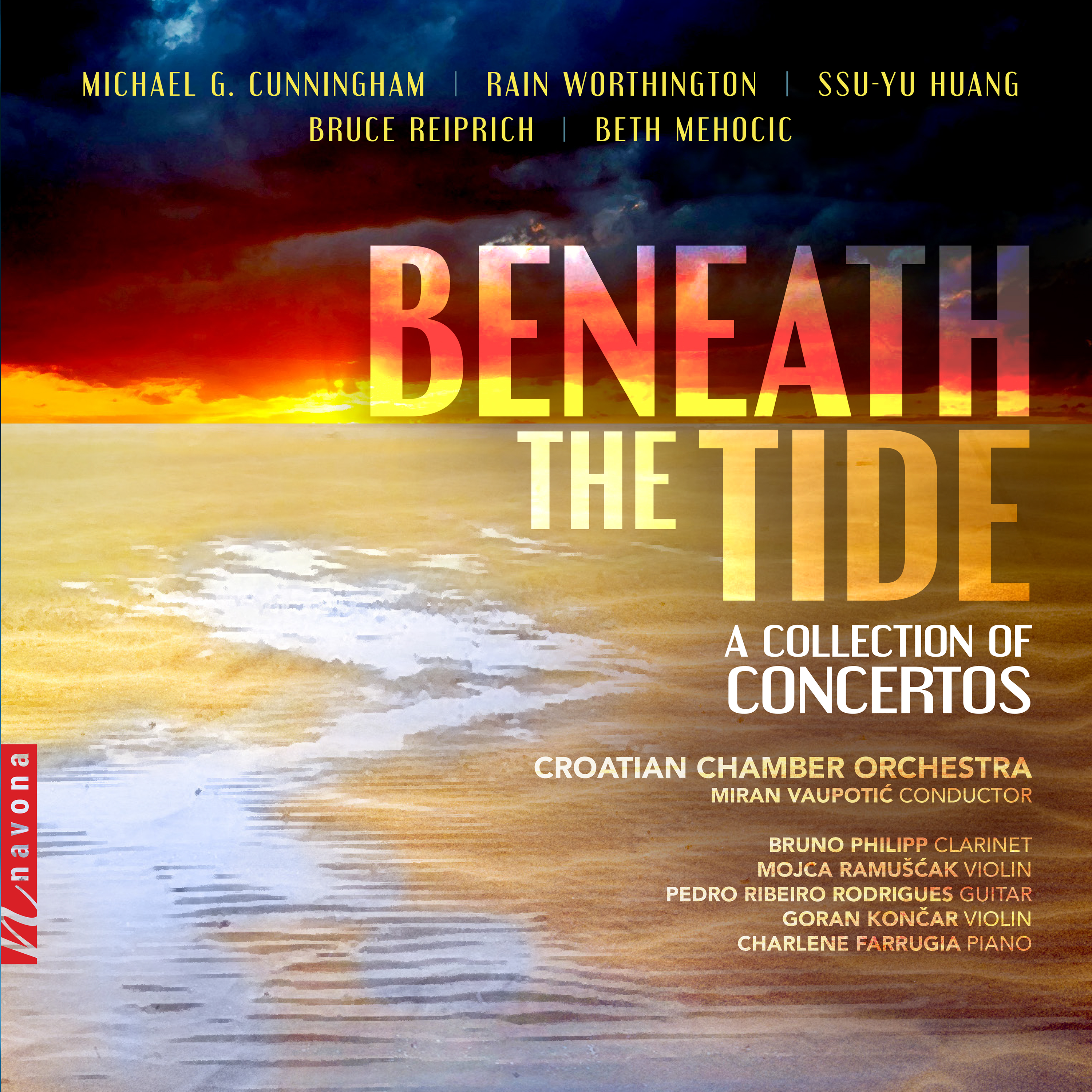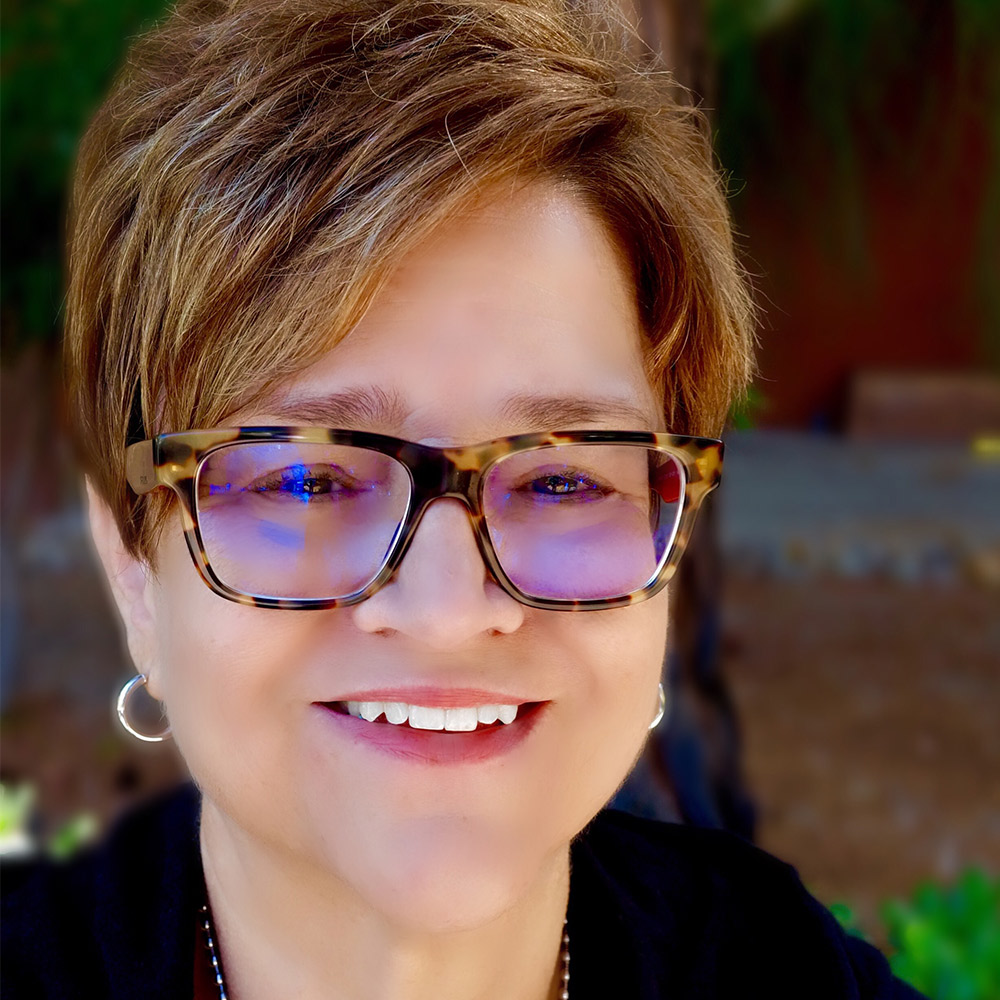
Beth Mehocic is a composer, poet, visual artist, filmmaker, and author. She is currently the Music Director/Composer-in-Residence and full professor for the Department of Dance at the University of Nevada, Las Vegas. Beth has written over 100 works for orchestra, concert band, chamber music, dance ensembles, theatre, and film, and her works have been performed throughout the United States, Japan, China, Korea, and Europe.
From 2000-18, several of Beth’s music compositions written for choreography were performed at the Edinburgh Fringe Festival in Scotland, the Adelaide Fringe Festival in Australia, and for joint concerts between UNLV and the Korea National Sport University in Seoul, Korea. Her video dance poem Perpetual Motion with original music for vibraphone quartet was also performed in Seoul and the video is in the Jerome Robbins Dance Library of the NYC Library at Lincoln Center.
Beth was proclaimed “Distinguished Composer” of the City of Las Vegas by Former Mayor Jan Laverty Jones. She has also received several grants from The Nevada State Council on the Arts as well as a grant for her participation in the China Conference. Her other grants include awards from New Music Across America, the Southwest Gas Corp., The Western States Arts Foundation, Meet-the-Composer, and awards in music composition from ASCAP.
Today, Beth is our featured artist in “The Inside Story,” a blog series exploring the inner workings and personalities of our artists. Read on to discover how Beth learned to love avant-garde music…
What inspires you to write and/or perform?
I am what you might call a “utilitarian” composer. My whole career has been spent as the composer-in-residence and music director for the Dance Department at the University of Nevada, Las Vegas. Throughout my tenure at UNLV, I have been fortunate enough to have numerous projects with the dance faculty, guest artists, and student choreographers which kept and keep me extremely active and prolific as a composer. As such, I focused on electronic music sound scores and MIDI realizations of instrumental works because it was a quick turnaround for the choreographers to be able to use the music in rehearsals and performances. In 2012, I began to have the desire to get back to writing concert music. My first concert piece after my concert hiatus was a tone poem for 9 oboes, 4 bassoons, and synthesized sounds called Before We End.
What are your other passions besides music?
I began improvising at the age of 3 and music has always been such a major part of my life. But if I were starting undergraduate school now, I would be a multidisciplinary major in composition, visual, and graphic art and film. Although I have three degrees in music composition, I am also a visual artist, a video artist, a poet, and a dance musician and have used all these skills throughout my teaching career with dancers. One of my greatest passions that I regret not actively pursuing would be film composition. I always wanted to write film and TV scores.
If you could collaborate with anyone, who would it be?
There are several people and organizations I would love to collaborate with before my career is over. Since I am a dance composer, I would love to collaborate with either American Ballet Theatre or New York City Ballet as well as some of the incredible Modern Dance companies. As a concert composer, I would love to collaborate with the London Symphony, Chicago Symphony, or Cleveland Symphony to name a few. I would also love to collaborate with the Kronos Quartet. When I first started listening to their albums back in the 1980’s, they opened up a whole new world of interesting color that has always intrigued me. I finally got to see them in a live performance at the Smith Center in Las Vegas NV in 2013 and it was truly inspirational. My string quartet Picasso’s Flight which was recorded in January 2019 by the amazing Altius Quartet was inspired by the Kronos Quartet’s performance that I saw.
Do you have any specific hopes about what this album will mean to listeners?
I wrote this concerto in 1974 and it had one public performance in 1975 and that was it. I am hoping that this beautiful recording will help my concerto be discovered and have some public performances. I had always hoped that this work would become a part of the concerto repertory and even be used for concerto competitions. In 2017, I did a two piano arrangement of the concerto which was premiered in May 2018 and many people in the audience asked where they could buy it. I am hoping that this recording will inspire audiences to want to hear the concerto live and to have this recording.
How have your influences changed as you grow as a musician?
When I was growing up, I listened to classical music a lot. I was very inspired by Beethoven and I could hum the themes of all the movements of the 9 symphonies, and of course I wanted to write like him. In college, I was introduced to avant-garde music and at the time I was really repelled by it. However, when I was introduced to the music of Stravinsky and Copland, their works became and still are some of my most important influences. Their music probably led to my interest in dance-music even though I was interested in writing concert dance-music in high school. In the 1980’s when I got my job as composer-in-residence and music director for the UNLV Dance Department, I found that avant-garde music had its place in my writing because it works so well for dance and theatre. As I said above, I am a utilitarian composer and can write for whatever need arises. My influences haven’t really changed; they just continue to grow.
Where and when are you at your most creative?
I can be inspired at any time and anywhere. I use to have to keep a pad with me so I could write down ideas. I also use to get inspired at 2 am and have to get out of bed and go write. That doesn’t happen that much anymore. I am fortunate that when I sit down to write, the music seems to write itself and I can work very fast. I compose at the computer, which I’m sure many composers do now. I don’t need a piano in order to write, and I don’t need to write the score out on paper. Actually, I haven’t written music on paper since the late 1980’s; instead, I just enter it right into the computer. You can imagine the panic that happens when the computer crashes even though it’s backed up.

Concerto for Piano and Orchestra will be available on BENEATH THE TIDE for streaming or purchase through Navona Records on March 22. Click here to pre-order.

Dr. Beth Mehocic was the Composer-in-Residence, Music Director, and Full-Professor for the Dance Department at the University of Nevada, Las Vegas, and wrote over 100 works for orchestra, concert band, chamber music, dance ensembles, theater, and film. Her works have been performed throughout the United States, Japan, China, Korea, and Europe, and she had works performed in several Las Vegas Hotels including The Mirage, Caesar’s Palace, and the Las Vegas Hilton. Several of her works have been recorded for PARMA Recordings.
